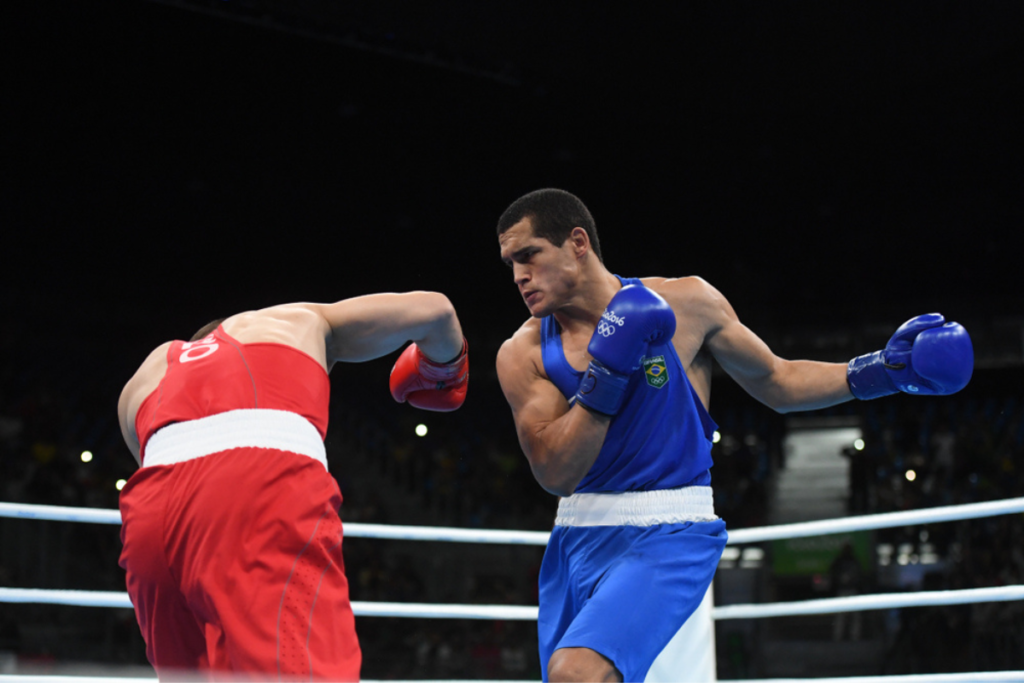The knowledge that sport drives social change is deeply ingrained in the DNA of every Brazilian. This is even more evident when we see people fighting for new life achievements both inside and outside the ring. According to the Brazilian Boxing Federation (CBBoxe), boxing has been Brazil's most successful Olympic sport since the 2012 London Olympics.
Discussing boxing and its social aspects is part of everyday life for people like Breno Macedo, the former Brazilian boxer from Rio Claro, São Paulo state, and his family. Breno followed in his father Marcos Macedo's footsteps by opening the popular boxing gym “Boxe Autônomo” and heading the social project “MMBoxe.”
The gym was founded in late 2015 in the Leila Jaled Ocupacião building in downtown São Paulo and is now located in the Casa do Povo in the city's Bom Retiro neighborhood. For an affordable monthly fee, the gym offers a place for sports recreation for children and young people, as well as intensive training for those who want to take up boxing as a career.
When boxing first began in Brazil, most of the participants were immigrants looking to integrate. Eder Jofre, Brazil's greatest ever boxer, is a prime example, as the son of an Italian mother and an Argentine father who came to Brazil in search of a better life.
Today, the sport's social profile has changed: despite rampant prejudice and sexism, more black, indigenous, multiracial people and women now represent the sport's demographic mosaic.
The 2012 London Olympics was a major starting point for women to take part in boxing after being banned from practicing the sport for decades. Women's boxing held its first world championships at the Europa Cup in 2001. The success of female athletes in the ring is gradually silencing the sexism that was once overtly supported and widespread in Brazil.
Macedo's research and experience make it clear that boxing is ubiquitous in Brazil's low-income communities. Former boxer Adriana Araújo illustrates this vividly. Coming from an extremely poor family in Salvador, Bahia, Araújo could not choose sport as her sole profession because it did not provide her with the money she needed to survive. After years of selling raffle tickets and coffee at a gym and working as a health care assistant, Araújo received Bolsa Atleta, a federal program that provides financial support to athletes in Olympic sports, in 2009.
Since then, she became the first Brazilian female boxer to win an Olympic medal at the 2012 London Summer Olympics and has become representative of a generation of female athletes looking to find their voice through sport.
Breno Macedo now works as a sports and life coach in Rio Claro. He has a master's degree in the social history of boxing and wants to offer new boxers not only physical training, but also social, cultural and intellectual support. He actively organizes debates and reading groups in the gym, addressing an issue that plagues the life of a boxer from a poor background: prejudice.
One of the results of Macedo's social contribution projects is featherweight athlete Jussiellen Romeu, a vivid example of a black female athlete who knows where she comes from and where she wants to go, and a promising candidate for the 2024 Paris Olympics.
Her gold medal win at the 2023 Pan American Games has implications beyond the podium: Along with Beatriz Ferreira, Romeu is Brazil's big hope for a boxing gold medal in the coming weeks.

